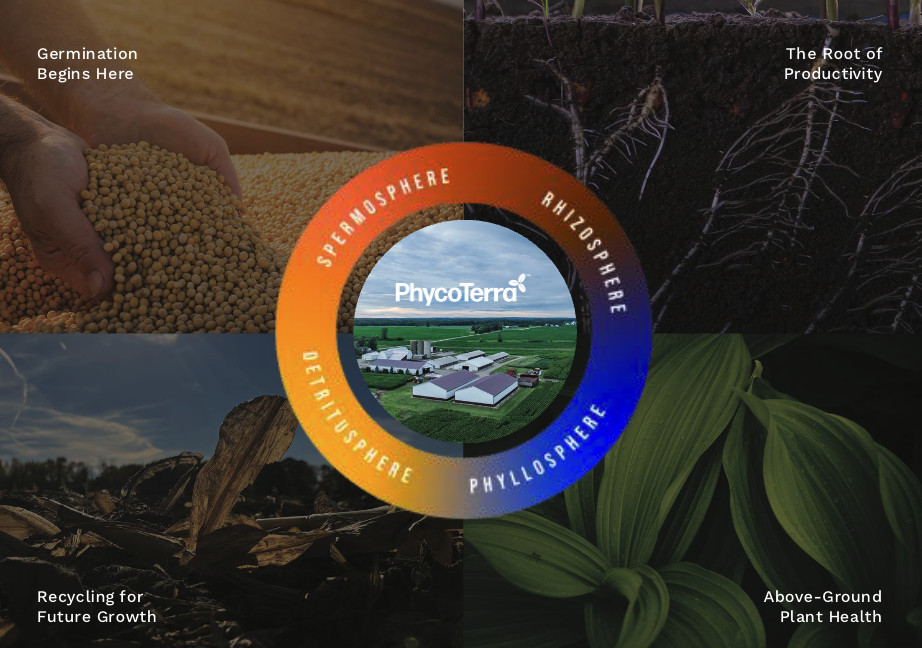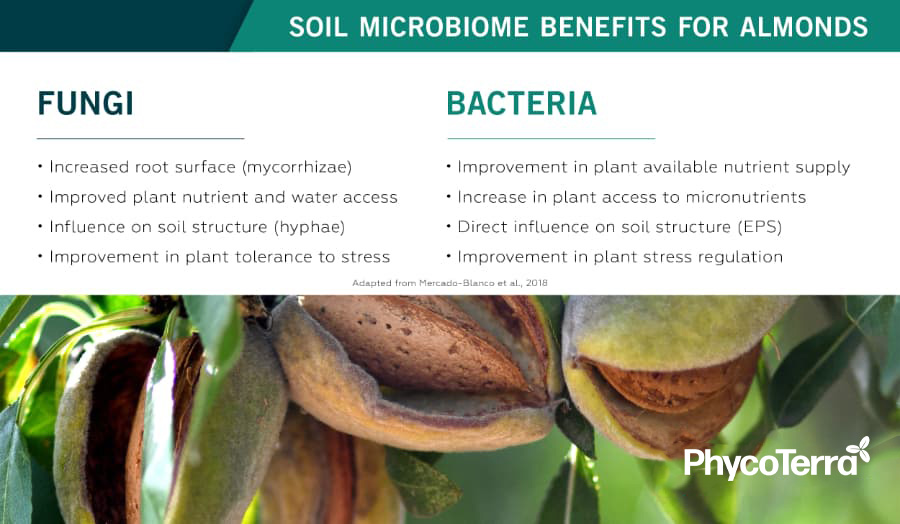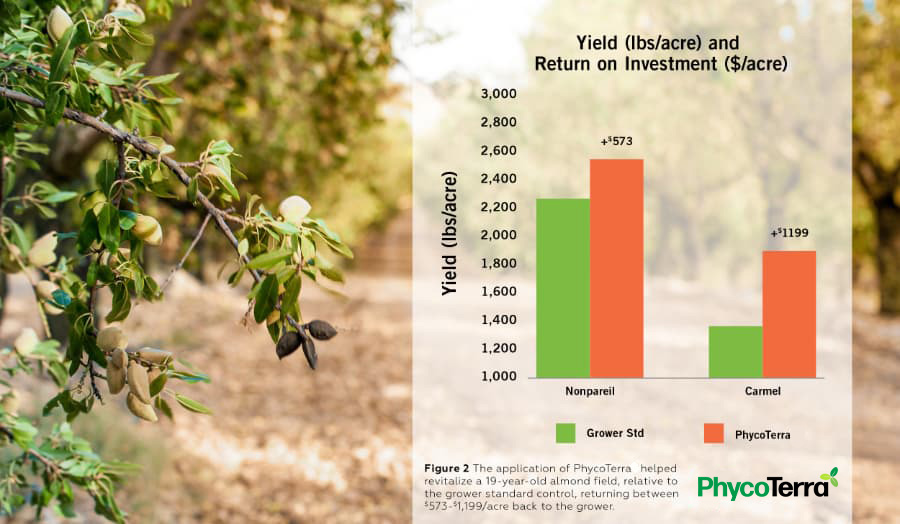Feb 06, 2026

Although soil microbes, including bacteria and fungi, are microscopically small, they can have an enormous impact on the performance of your almond crop. According to a recent study, soil microbial communities associated with tree crops are critical for their long-term growth and development, particularly under challenging soil conditions (Mercado-Blanco et al., 2018), (Figure 1). Soil microbial communities are known to contribute to increased aboveground plant productivity, improve the availability of soil nutrients and water, and can help mitigate abiotic stressors and toxic compounds (Mercado-Blanco et al., 2018) for the associated crop (Weil and Brady 2017). In our case study, we analyzed the importance of microbial activity in almond tree soil.
The PhycoTerra product line of conventional and organic microalgae technology is a proven way to increase soil microbial activity that can have an immediate impact on your almond tree growth and yield. This idea, as eloquently expressed by Mercado-Blanco et al., (2018), is that the belowground microbiome can be harnessed to improve the growth and development of permanent tree crops worldwide. Let’s now turn our attention to two case studies showcasing the use of PhycoTerra and PhycoTerra Organic on improving almond growth and yield. The key connection here is that the PhycoTerra product line had a direct, positive impact on soil microbial abundance and diversity, which lead to an improvement in crop performance (Mercado-Blanco et al., 2018).
We were challenged to help optimize the establishment and growth of third leaf almonds near Bakersfield, CA and chose PhycoTerra Organic to help drive optimal improvement in the soil microbiome. Using a planned, program approach, we applied 3 gallons/acre total of product in small doses at key timings, starting with petal drop. Since yield information was not available on the young trees, we used growth in trunk diameter as a proxy for crop response against a grower standard.
Blocks on the PhycoTerra Organic program showed a 30% average increase in trunk diameter compared to their respective control blocks of the same size. We are moving into Year 2 of the trial and should start to see yield impacts shortly.
We were asked to help a grower gain additional value from a 19-year-old almond field, close to the end of its useful productive capacity. With that in mind, we felt revitalizing the soil microbiome, using PhycoTerra, was key due to the relationship between tree crop production and belowground bacteria and fungi populations (Mercado-Blanco et al. 2018). We applied a total of four gallons/acre to the field at key timings using a planned, program approach.
Application of PhycoTerra, with the intent to increase microbial activity the soil, improved yield and value for both Nonpareil and Carmel almond varieties in an older orchard (Figure 2), compared to the grower standard. Additionally, the grower observed less lower limb die-off on the PhycoTerra side and we believe this played a role in the improved yield. Nut size also increased, using PhycoTerra, jumping from 25/27 to 23/25, for both varieties.
Our research about the importance of soil microbial activity in soil at Heliae Agriculture has led to the creation of a quality microalgae product for a variety of sustainable soil solutions that can have an immediate impact on your soil microbiome and the performance of your almond trees. Learn more about our soil amendment, PhycoTerra, and how it can improve the soil on your farm.

Figure 1 – How soil microbes (fungi and bacteria) improve almond tree soil and performance (Mercado-Blanco 2018).

Figure 2 – The application of PhycoTerra helped revitalize a 19-year-old almond field, relative to the grower standard control, returning between $573-S1,119/acre back to the grower.
Note: All trial data is current as of blog posting. For the most up to date trail data, please visit our trials page.
References